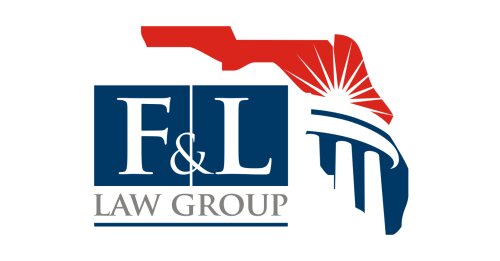Best Bankruptcy Lawyers in Florida
Share your needs with us, get contacted by law firms.
Free. Takes 2 min.
Or refine your search by selecting a city:
List of the best lawyers in Florida, United States
About Bankruptcy Law in Florida, United States
Bankruptcy is a legal process designed to help individuals and businesses eliminate or repay their debts under the protection of the federal bankruptcy court. In Florida, bankruptcy provides a fresh financial start for people burdened by overwhelming debt. The most common types for individuals are Chapter 7 (Liquidation) and Chapter 13 (Reorganization). Each bankruptcy case is unique, and Florida law interacts with federal bankruptcy law in ways that may affect exemptions, property protection, and proceedings. Understanding these laws is important for making informed decisions about your financial future.
Why You May Need a Lawyer
Many people considering bankruptcy in Florida benefit from consulting an experienced lawyer for several reasons. Filing for bankruptcy involves complex legal paperwork, strict deadlines, and understanding both federal and state laws. Common situations where legal help is important include:
- Uncertainty about whether to file for Chapter 7 or Chapter 13
- Facing foreclosure or repossession of home or car
- Owing significant unsecured debts, such as medical bills or credit cards
- Being threatened with lawsuits or wage garnishment by creditors
- Owning valuable assets and needing guidance on protecting them through Florida exemptions
- Previous bankruptcy filings or concerns about eligibility
- Issues with business debt or self-employment income
A bankruptcy attorney can help you understand your options, prepare required documents, represent you in court, and protect your rights throughout the process.
Local Laws Overview
While bankruptcy is governed mostly by federal law under the United States Bankruptcy Code, Florida law plays an important role, especially with respect to property exemptions. Key aspects of bankruptcy law in Florida include:
- Homestead Exemption: Florida offers one of the most generous homestead exemptions in the country. Unlimited equity in your primary residence may be protected, provided you have owned the home for at least 1,215 days before filing.
- Personal Property Exemptions: Certain types of personal property are exempt up to specific limits, such as $1,000 for personal property or $4,000 if you do not use the homestead exemption.
- Vehicle Exemption: Up to $1,000 in equity in a vehicle may be protected under state law.
- Tenancy by the Entirety: Property owned jointly by married couples in Florida may have special protection from creditors.
- Means Test: Florida residents must pass a means test, comparing their income to the median income for a household of similar size in Florida, to qualify for Chapter 7 bankruptcy.
- Mandatory Credit Counseling: Before filing, debtors must complete a credit counseling course from an approved provider.
- Florida Bankruptcy Courts: Bankruptcy cases are filed in one of the federal bankruptcy courts in Florida, which is divided into the Northern, Middle, and Southern Districts.
Frequently Asked Questions
What is the difference between Chapter 7 and Chapter 13 bankruptcy in Florida?
Chapter 7 bankruptcy allows you to discharge most unsecured debts by liquidating non-exempt assets. Chapter 13 allows you to keep your property and repay debts over 3 to 5 years under a court-approved payment plan. The right chapter depends on your income, assets, and financial goals.
Will I lose my home if I file for bankruptcy in Florida?
Florida has a strong homestead exemption. If you meet the required criteria, you may be able to keep your home when filing for bankruptcy. However, factors such as mortgage status, equity, and residency duration may affect your home’s protection.
What debts can be discharged in bankruptcy?
Most unsecured debts like credit cards, personal loans, and medical bills can be discharged. Some debts, such as student loans, child support, alimony, recent taxes, and certain fines, are generally not dischargeable.
Who qualifies for Chapter 7 bankruptcy in Florida?
To qualify for Chapter 7, you must pass the means test, which compares your household income to the Florida median for your family size. If your income is below the median, you likely qualify. If not, other calculations determine eligibility.
How does filing for bankruptcy affect my credit score?
Filing for bankruptcy will negatively impact your credit score. Chapter 7 bankruptcy remains on your credit report for up to 10 years, while Chapter 13 remains for up to 7 years. However, many people are able to start rebuilding credit soon after their case concludes.
Can bankruptcy stop foreclosure or repossession in Florida?
Yes, filing for bankruptcy triggers an automatic stay, which temporarily halts foreclosure or repossession efforts. In some cases, Chapter 13 allows you to catch up on mortgage or car payments through a repayment plan.
How long does the bankruptcy process take in Florida?
A typical Chapter 7 case takes about 4 to 6 months from filing to discharge. Chapter 13 cases last 3 to 5 years, as they are based on a repayment plan.
Are retirement accounts protected in Florida bankruptcy?
Most qualifying retirement accounts, such as 401(k)s and IRAs (up to certain limits), are protected under both Florida law and federal bankruptcy law.
Can both spouses file for bankruptcy together in Florida?
Yes, married couples can file jointly or individually. A joint filing may be beneficial if both spouses have significant debt. An attorney can help determine the best approach.
Will all my debts be discharged if I file for bankruptcy?
Not all debts are dischargeable. Obligations like child support, alimony, certain taxes, student loans (except in rare circumstances), and some court fines usually cannot be eliminated through bankruptcy.
Additional Resources
If you need more information or assistance with bankruptcy in Florida, the following resources can be helpful:
- United States Bankruptcy Court - Northern, Middle, and Southern Districts of Florida
- Florida Bar Association - Lawyer Referral Service
- Legal Aid organizations in your county
- Consumer Credit Counseling Services
- Florida Office of Financial Regulation
- Federal Trade Commission - Credit and Bankruptcy information
Next Steps
If you are considering bankruptcy or have been threatened with legal action by creditors, consider these next steps:
- Gather your financial documents, including debts, assets, income, and expenses.
- Schedule a consultation with an experienced Florida bankruptcy attorney to discuss your options.
- Complete the required credit counseling from an approved provider.
- Review your eligibility for Chapter 7 or Chapter 13 with your attorney.
- Work with your attorney to prepare and file your bankruptcy petition in the correct district court.
- Attend your meeting of creditors (341 meeting) and complete any required steps until your case concludes.
A knowledgeable bankruptcy lawyer can guide you through the process, help protect your assets, and ensure your case complies with both state and federal law.
Lawzana helps you find the best lawyers and law firms in Florida through a curated and pre-screened list of qualified legal professionals. Our platform offers rankings and detailed profiles of attorneys and law firms, allowing you to compare based on practice areas, including Bankruptcy, experience, and client feedback.
Each profile includes a description of the firm's areas of practice, client reviews, team members and partners, year of establishment, spoken languages, office locations, contact information, social media presence, and any published articles or resources. Most firms on our platform speak English and are experienced in both local and international legal matters.
Get a quote from top-rated law firms in Florida, United States — quickly, securely, and without unnecessary hassle.
Disclaimer:
The information provided on this page is for general informational purposes only and does not constitute legal advice. While we strive to ensure the accuracy and relevance of the content, legal information may change over time, and interpretations of the law can vary. You should always consult with a qualified legal professional for advice specific to your situation.
We disclaim all liability for actions taken or not taken based on the content of this page. If you believe any information is incorrect or outdated, please contact us, and we will review and update it where appropriate.
Browse bankruptcy law firms by city in Florida
Refine your search by selecting a city.












